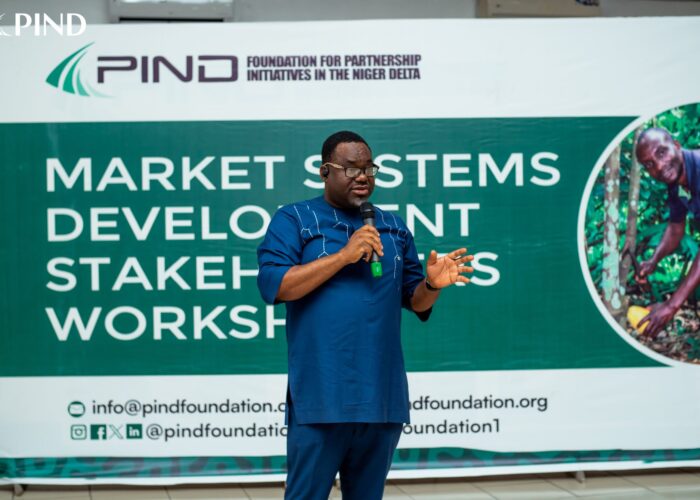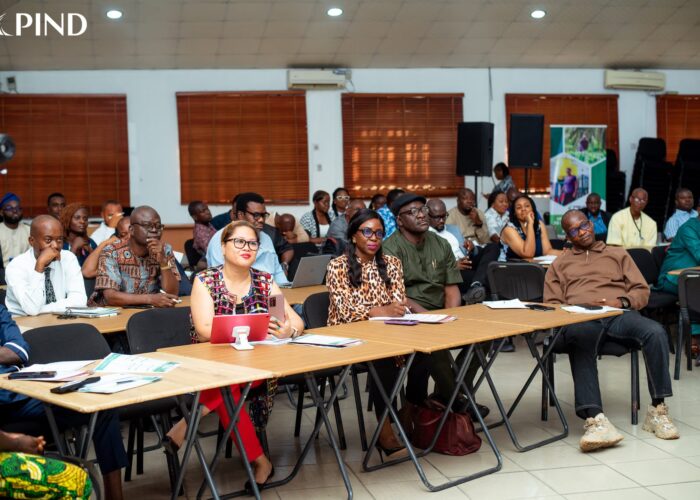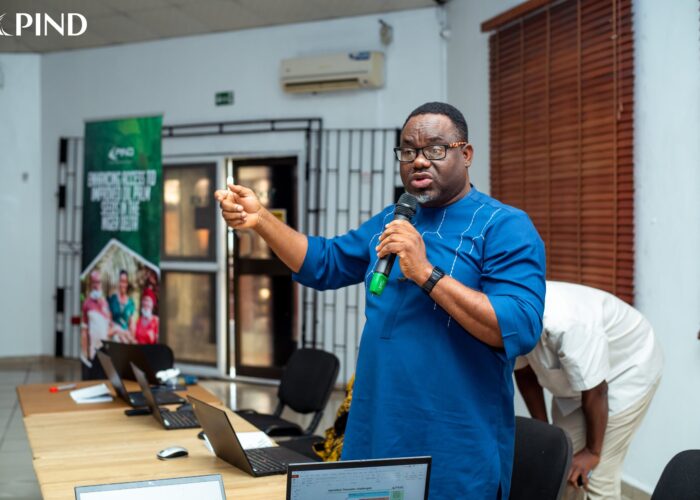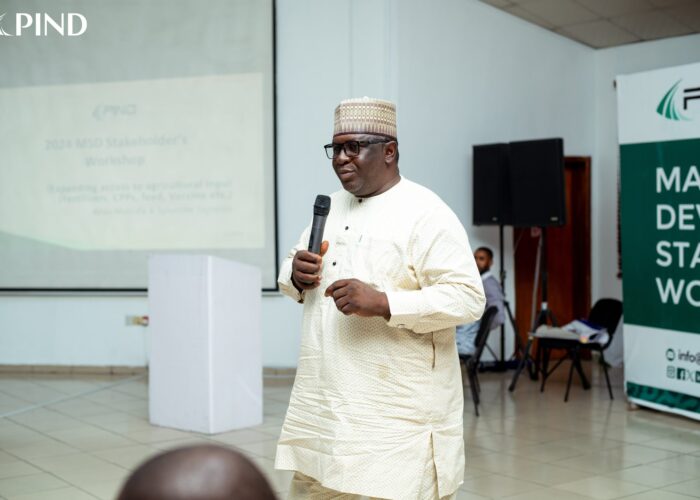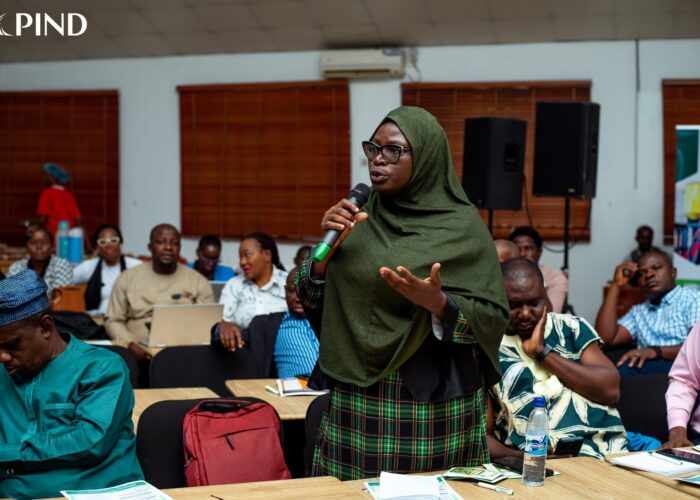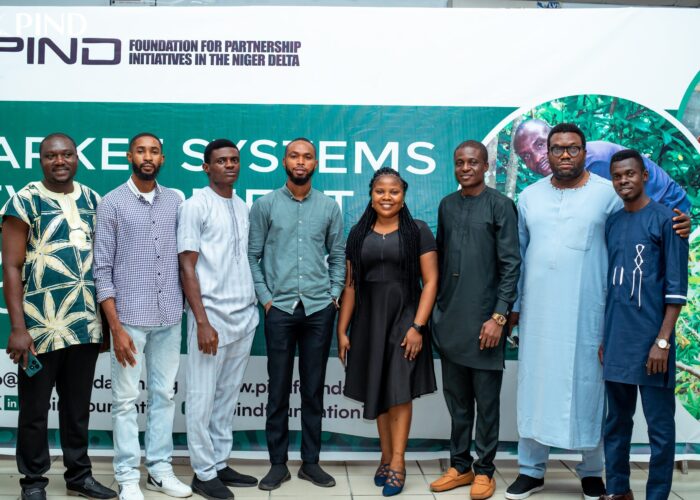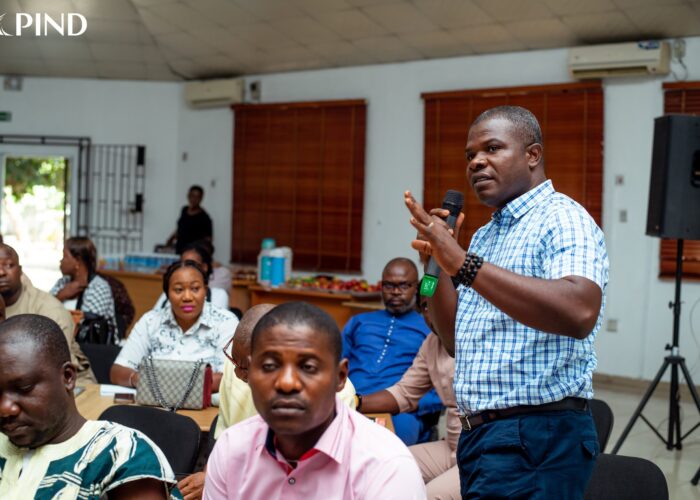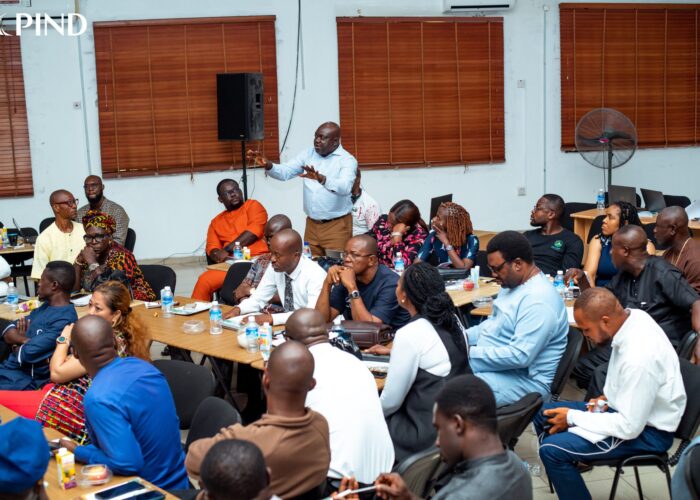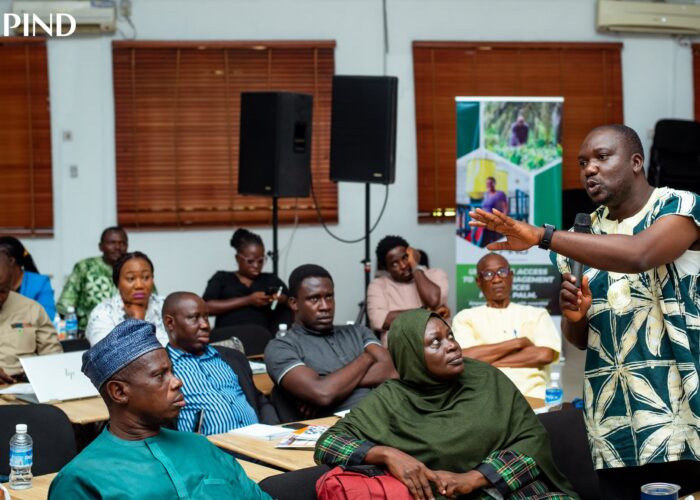The Foundation for Partnerships Initiatives in the Niger Delta (PIND) hosted a two-day Market Systems Development Stakeholders’ Workshop on December 5-6, 2024. The workshop brought together key actors from the market ecosystem, including service providers, input firms, research institutes, and government representatives.
The workshop marked a significant milestone as PIND transitions from sector-specific agricultural value chains to a cross-cutting thematic approach for its 2025-2029 strategic phase. Designed as a platform for reflection, collaboration, and strategy development, the engagement provided an opportunity to assess the achievements, challenges, and learnings from the 2020-2024 strategic phase, while charting a course for the future.
Reflections on 2020-2024 Progress
Since 2020, PIND’s Market Systems Development project has worked to strengthen agricultural value chains for cassava, cocoa, palm oil, and poultry. The project also supported MSMEs through development and linkages activities. Interventions centered on improving access to quality seeds, agronomic services, processing technologies, finance, and market linkages to increase farmers’ productivity and incomes.
However, following a mid-term review in 2022, PIND identified the need for a strategic shift to broaden its impact. The 2025-2029 strategic phase will adopt a cross-cutting thematic approach centered on five key areas of access:
- Access to seeds
- Access to inputs
- Access to business development services and finance
- Access to industrial markets and agricultural technology
- Access to technical services
This approach aims to deepen PIND’s impact by fostering systems-level change across multiple value chains, driving inclusive economic development, and ensuring that smallholder farmers and MSMEs have access to critical support services.
Insights, Lessons, and Forward Strategy
The two-day workshop facilitated stakeholder-driven learning and strategy development. Participants reviewed PIND’s cumulative results from the 2020-2024 strategic phase and engaged in breakout sessions to explore the five thematic areas for the upcoming phase. The interactive sessions encouraged stakeholders to provide insights on market gaps, emerging trends, and partnership opportunities to inform future interventions.
These sessions also offered a platform for experience-sharing, enabling stakeholders to highlight effective practices, address common challenges, and propose innovative solutions. The feedback generated from these discussions will inform the design of PIND’s next strategic interventions, ensuring that future activities are responsive to the realities of the market and aligned with stakeholder needs.
Strengthening Collaboration for Greater Impact
One of the key outcomes of the workshop was the co-creation of a roadmap for PIND’s 2025-2029 strategic phase. By mapping out actionable plans, defining roles, and identifying priority activities, the workshop fostered greater stakeholder alignment and ownership. PIND aims to leverage this collective effort to drive sustainable market development and ensure that interventions remain relevant and impactful.
The workshop also highlighted the critical role of partnerships in achieving systemic change. Stakeholders reaffirmed their commitment to collaborating with PIND in delivering market-driven solutions that enhance the livelihoods of smallholder farmers and MSMEs in the Niger Delta. The insights gathered will shape the design and delivery of future interventions, ensuring alignment with market needs and the realities on the ground.
Looking Ahead
As PIND embarks on its 2025-2029 strategic phase, the shift to cross-cutting thematic areas represents a bold step towards achieving more inclusive, scalable, and sustainable development outcomes. By addressing the core challenges faced by smallholder farmers and MSMEs, PIND aims to catalyze broader market system change and deepen its impact across the Niger Delta.
The outcomes of the Stakeholders’ Workshop will serve as a critical reference point for the next phase of implementation. As PIND continues to engage stakeholders, foster partnerships, and co-create solutions, it remains committed to supporting the livelihoods of farmers, enterprises, and communities in the Niger Delta.

